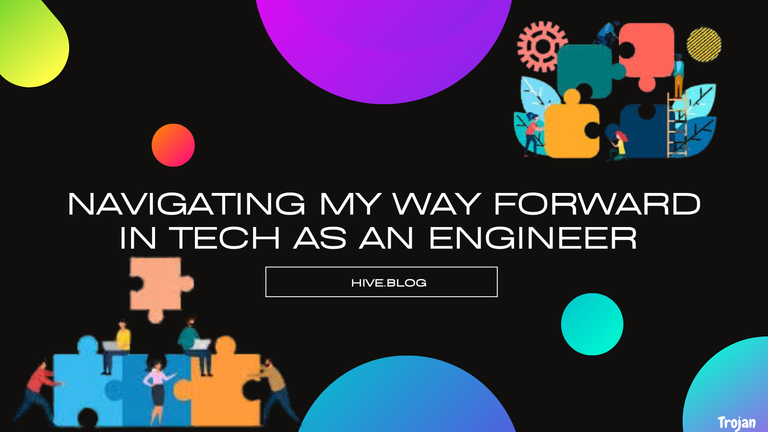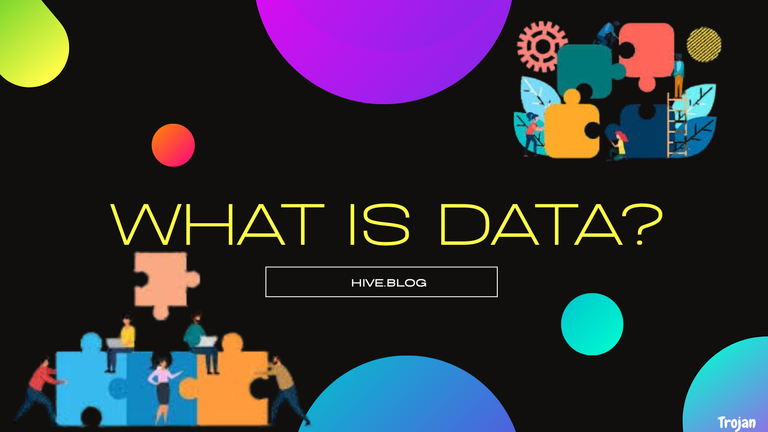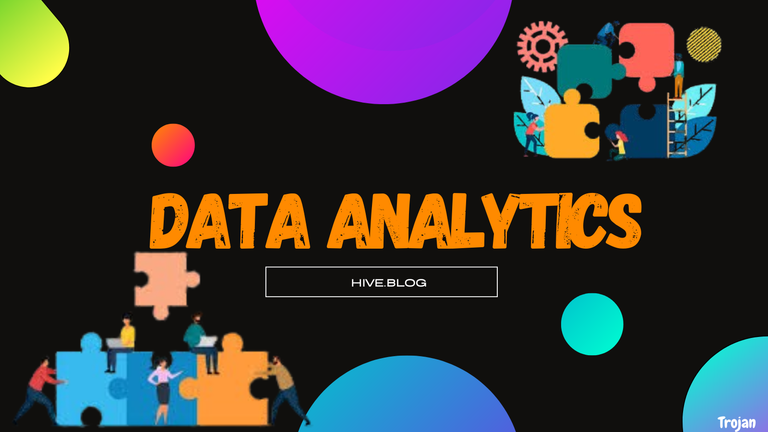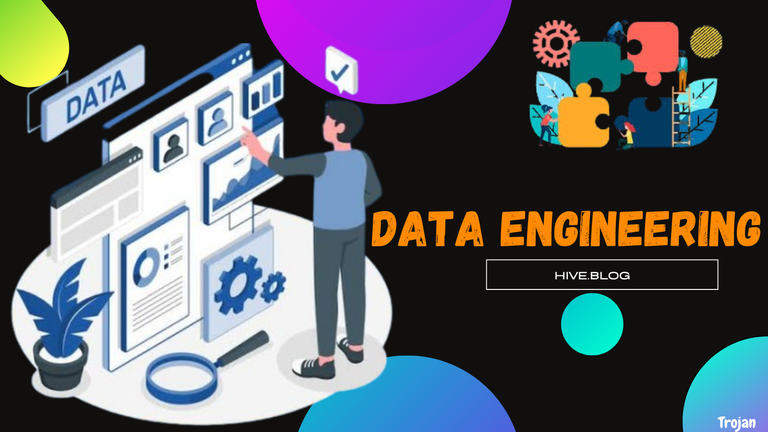Good day everyone, most of the community members are aware that I wrote my last paper 2 months ago and even before then, I have been thinking about what my next step in life would be and for someone like myself that doesn't like 8-5, I was really scared of what the next phase in life would be. So today, I will be writing on vital topic explaining why I chose to further with data analytics an engineer.

I know there are also others out there wondering what next to do after achieving a certificate in engineering or any other field I hope this personal experience of mine shows a map on what next to do in line with their career path. At the long run their career path might be different from mine but if they dim it fit to follow the steps and why I decided to do this then I guess they can pave their own path with ease.
Before taking the decision to venture into tech, I made sure that I was 100% sure of this. I knew I had the passion and the motivation was there. But you might ask why data analytics and not web dev or something else. Well, it wasn't an easy choice to select but there is something you should know when trying to move forward and it is Research. Your research game should be at it's peak from asking people for advice to attending cohorts or seminars and even asking questions through the use of AI. All these can help you make that decision.
For me, I didn't want something that strayed away from my roots which was in engineering. I wanted something that I could use as an engineer and I can also implement all my side skills with (affiliate marketer, trader, social media manager and technical writer). If you check all this these skills, they will eventually come in handy in the bigger picture. So I made my RESEARCH and knew where I was headed.
What is Data??

Data in simple terms is a gathered information. It is information in raw or unorganized form. It may be a fact, figure, characters, symbols etc. Data can exist in a variety of forms stored in a person’s mind. In our digital world, data is everywhere from your social media activity to weather patterns.
Data Analytics

It’s the art and science of collecting, cleaning, analyzing, and visualizing data to extract valuable insights. You should note that once a data is organized it becomes an information that will enable decisions.
As a person that studied engineering with both diploma and bachelor degree, I found it crucial to advance in a more technical aspect of engineering. Engineering and the course I studied (Electrical Electronics ) is good but I wanted to do something different from every of my lecturers did or fellow course mates and something less saturated. I found myself doing some research in the tech field. I don’t know what really made me love data analytics but I could not just get my mind off it. In as much as I saw various opportunities to learn other courses like cyber security, data management, data science, I just found myself drawn to it and immediately I saw that it was something that could not leave my mind I started looking for ways to venture into it and I how it can assist my life as an engineer.
Although there was a time whereby I wanted to go into the health sector of data analytics because that is where the money is 😅😅 but after my first class with plural code we were advised to go into specialization on a field we have a background in and from then I started working towards plans on getting my specialization into the engineering field.
Let’s talk about the different fields in data analytics. To mention a few, we have.
- Business Analytics: Focuses on business decision-making, process improvement, and strategic planning.
- Data Science: Emphasizes machine learning, programming, and statistical modeling to extract insights.
- Data Engineering: Concentrates on designing, building, and maintaining large-scale data systems.
- Marketing Analytics: Analyzes customer behavior, market trends, and campaign effectiveness.
- Financial Analytics: Focuses on risk management, portfolio optimization, and financial modeling.
- Healthcare Analytics: Examines patient outcomes, treatment effectiveness, and healthcare systems.
- Supply Chain Analytics: Optimizes logistics, inventory management, and procurement processes.
- Geospatial Analytics: Analyzes location-based data to understand geographic patterns and trends.
- Data Visualization: Specializes in communicating insights through interactive and dynamic visualizations.
- Quantitative Analytics: Applies mathematical and statistical techniques to analyze and model complex systems.
- Text Analytics: Extracts insights from unstructured text data, such as sentiment analysis.
- Predictive Analytics: Develops models to forecast future events, behaviors, or outcomes.
- Prescriptive Analytics: Provides recommendations to optimize business outcomes.
- Big Data Analytics: Handles large, complex datasets to uncover hidden patterns.
- Cloud Analytics: Leverages cloud computing for scalable data analysis.
- Network Analytics: Examines relationships and connections within complex networks.
- Cybersecurity Analytics: Identifies and mitigates cyber threats through data analysis.
- Environmental Analytics: Studies environmental data to understand and mitigate impacts.
- Social Media Analytics: Analyzes social media data to understand public opinion and behavior.
After doing my researches on the above, 3 (Data Engineering, Cloud Analytics and Network Analytics) out of the 20 listed here stood out for me and went further to do more research on them.
Going forward I decided to stick with data engineering and immediately I took that decision in going for engineering, I needed to know what next I will do after getting my certificate in data analytics and for me, the next plan was masters. I know that there are other skills I need to get before I start that masters race and simultaneously with the data course, I got involved.
Data Engineering

Data engineering refers to the building of systems to enable the collection and usage of data. They work in various settings to build systems that collect, manage, and convert raw data into usable information for data scientists and business analysts to interpret. Their ultimate goal is to make data accessible so that organisations can use it to evaluate and optimise their performance.
Skills needed:-
Data engineering is a profession with skills positioned between software engineering and programming on one side and advanced analytics skills like those needed by data scientists on the other.
It requires solid programming skills, statistics knowledge, analytical skills, and an understanding of big data technologies.
I know with time I will grasp the knowledge needed for this journey but for now, my full concentration is getting my diploma in data analytics.
Fingers crossed for a smooth journey experience. Wish me luck
Life after campus is all about fortifying yourself with more certificates and trusting God for help.
This post was gotten from my MEDIUM account and was edited and posted here.
All images were created using CANVA
